Filter by
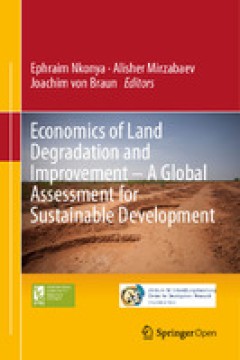
Economics of land degradation and improvement: a global assessment for sustai…
- Edition
- -
- ISBN/ISSN
- 9783319191683
- Collation
- xviii, 686p.: ill.
- Series Title
- -
- Call Number
- 333.7 ECO e
- Edition
- -
- ISBN/ISSN
- 9783319191683
- Collation
- xviii, 686p.: ill.
- Series Title
- -
- Call Number
- 333.7 ECO e
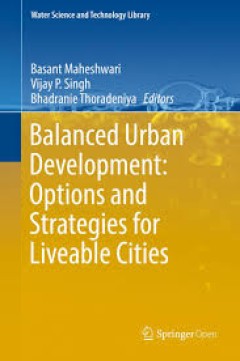
Balanced urban development: options and strategies for liveable cities
This book provides a unique synthesis of concepts and tools to examine natural resource, socio-economic, legal, policy and institutional issues that are important for managing urban growth into the future. The book will particularly help the reader to understand the current issues and challenges and develop strategies and practices to cope with future pressures of urbanisation and peri-urban la…
- Edition
- -
- ISBN/ISSN
- 9783319281124
- Collation
- pages cm
- Series Title
- -
- Call Number
- 338.9 MAH b
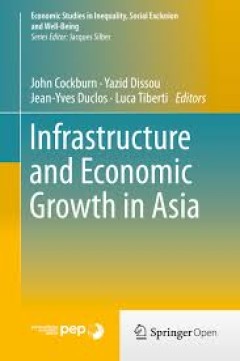
Infrastructure and economic growth in Asia
Public spending on infrastructure plays an important role in promoting economic growth and poverty alleviation. Empirical studies unequivocally show that under-investment in infrastructure limit economic growth. At the same time, numerous other studies have shown that investment in infrastructure can be a highly effective tool in fighting poverty reduction1. In that context, the financing of in…
- Edition
- -
- ISBN/ISSN
- 9783319031378
- Collation
- 148 p.
- Series Title
- -
- Call Number
- 330 COC i
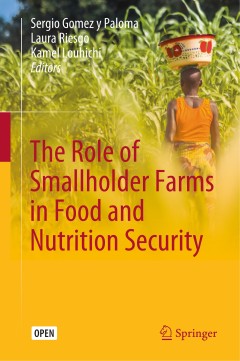
The role of smallholder farms in food and nutrition security
This open access book discusses the current role of smallholders in connection with food security and poverty reduction in developing countries. It addresses the opportunities they enjoy, and the constraints they face, by analysing the availability, access to and utilization of production factors. Due to the relevance of smallholder farms, enhancing their production capacities and economic and…
- Edition
- -
- ISBN/ISSN
- 9783030421489
- Collation
- xi, 251p. : ill.
- Series Title
- -
- Call Number
- 338.1 ROL r
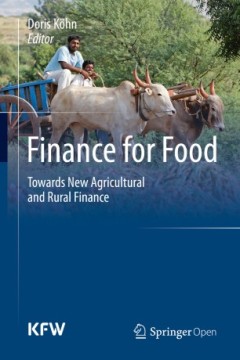
Finance for food : towards new agricultural and rural finance
This book reflects the current state of discussion about agricultural and rural finance in developing and transition countries. It provides insight into specific themes, such as commodity value chains, farm banking, risk management in agricultural banking, structured finance, crop insurance, mobile banking, and how to increase effectiveness in rural finance. Case studies illustrate various aspe…
- Edition
- -
- ISBN/ISSN
- 9783642540349
- Collation
- xii, 295p. : ill
- Series Title
- -
- Call Number
- 630.681 FIN f
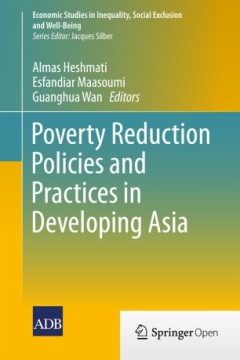
Poverty reduction policies and practices in developing Asia
This book looks at the major policy challenges facing developing Asia and how the region sustains rapid economic growth to reduce multidimensional poverty through socially inclusive and environmentally sustainable measures. Asia is facing many challenges arising from population growth, rapid urbanization, provision of services, climate change and the need to redress declining growth after the g…
- Edition
- -
- ISBN/ISSN
- 9789812874207
- Collation
- xi, 314p. : ill.
- Series Title
- -
- Call Number
- 338.95 POV p
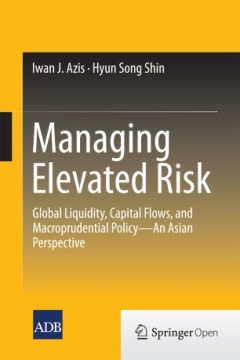
Managing elevated risk : global liquidity, capital flows, and macroprudential…
This book discusses the risks and opportunities that arise in Emerging Asia given the context of a new environment in global liquidity and capital flows. It elaborates on the need to ensure financial and overall economic stability in the region through improved financial regulation and other policy measures to minimize the emergent risks. "Managing Elevated Risk: Global Liquidity, Capital Flows…
- Edition
- -
- ISBN/ISSN
- 9789812872845
- Collation
- xviii, 124p. : ill.
- Series Title
- -
- Call Number
- 337 AZI m
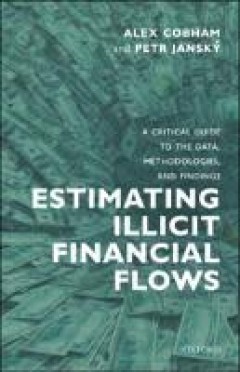
Estimating illicit financial flows: a critical guide to the data, methodologi…
Illicit financial flows constitute a global phenomenon of massive but uncertain scale, which erodes government revenues and drives corruption in countries rich and poor. In 2015, the countries of the world committed to a target to reduce illicit flows, as part of the UN Sustainable Development Goals. But five years later, there is still no agreement on how that target should be monitored—to s…
- Edition
- -
- ISBN/ISSN
- 9780198854418
- Collation
- pages cm
- Series Title
- -
- Call Number
- 338.9 COB e
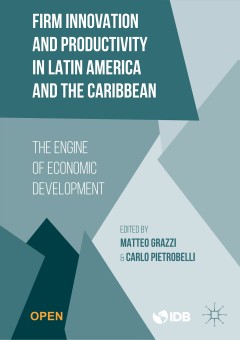
Firm innovation and productivity in Latin America and the Caribbean : the eng…
This volume uses the study of firm dynamics to investigate the factors preventing faster productivity growth in Latin America and the Caribbean, pushing past the limits of traditional macroeconomic analyses. Each chapter is dedicated to an examination of a different factor affecting firm productivity - innovation, ICT usage, on-the-job-training, firm age, access to credit, and international lin…
- Edition
- -
- ISBN/ISSN
- 9781349581511
- Collation
- xxv, 346p. : ill.
- Series Title
- -
- Call Number
- 338.9 FIR f
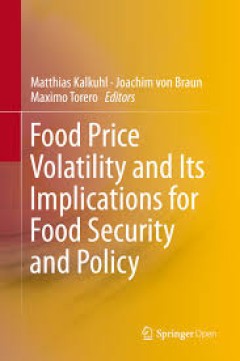
Food price volatility and its implications for food security and policy
This book provides fresh insights into concepts, methods and new research findings on the causes of excessive food price volatility. It also discusses the implications for food security and policy responses to mitigate excessive volatility. The approaches applied by the contributors range from on-the-ground surveys, to panel econometrics and innovative high-frequency time series analysis as wel…
- Edition
- -
- ISBN/ISSN
- 9783319282015
- Collation
- pages cm
- Series Title
- -
- Call Number
- 338.9 FOO f
 Computer Science, Information & General Works
Computer Science, Information & General Works  Philosophy & Psychology
Philosophy & Psychology  Religion
Religion  Social Sciences
Social Sciences  Language
Language  Pure Science
Pure Science  Applied Sciences
Applied Sciences  Art & Recreation
Art & Recreation  Literature
Literature  History & Geography
History & Geography